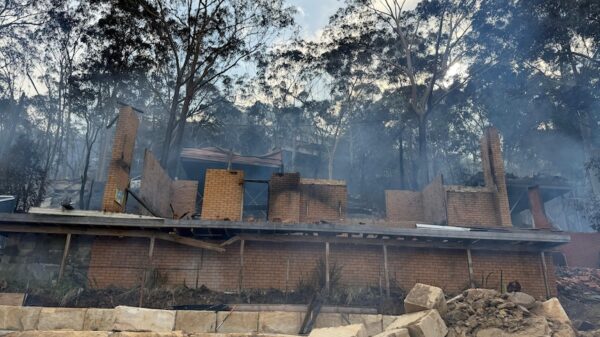A recent study conducted by researchers at Karolinska Institutet has uncovered critical insights into the mechanisms of DNA replication and its implications for cancer therapy. Published in Nature Communications, the research highlights how cyclin-dependent kinases (CDKs) facilitate DNA replication licensing by counteracting inhibitory signals from the RB tumor suppressor proteins.
The study primarily focuses on the protein group CDK4/6 and its interaction with RB proteins, which have long been recognized as pivotal in regulating the cell cycle. First identified in childhood retinoblastoma, the RB gene is considered a fundamental gatekeeper in cellular processes. The findings suggest that RB not only plays a role in cell cycle control but also in preparing the cell’s DNA for replication.
“Our discovery shows that the phosphorylation of RB by CDK4/6 serves two key functions,” explains Dr. Bennie Lemmens, senior author of the study. “It commits cells to divide while also preparing the genome for accurate copying. This dual role may elucidate why CDK4/6 inhibitors are effective in clinical settings and could lead to even more targeted cancer treatments.”
The researchers found that when CDK4/6 inhibitors were combined with other therapies that block DNA licensing, cancer cells began to divide without properly duplicating their DNA. This phenomenon proved particularly detrimental for cells deficient in the protective p53 gene, which is often absent in cancerous cells.
“The results were surprising because CDKs have traditionally been seen as inhibitors of DNA replication licensing,” states Michael Hawgood, lead author of the study. “However, our data consistently indicated a positive role for CDK4/6 in facilitating replication.”
To explore this dual functionality, the research team employed advanced rapid protein degradation technologies and collaborated with the laboratory of Halazonetis in Switzerland. These efforts enabled them to conduct highly sensitive DNA sequencing experiments, allowing for precise measurements of DNA replication at thousands of sites throughout the human genome.
“Our study extends the important concept we have developed regarding the role of RB in controlling the G1/S transition and preventing replication stress,” says Jiri Bartek, co-author and researcher at Karolinska Institutet. “Replication stress is a major contributor to genomic instability and cancer progression.”
The research has received substantial support from various organizations, including The Mark Foundation for Cancer Research, Cancerfonden, the Swedish Research Council, Karolinska Institutet, and SciLifeLab. Their contributions have been crucial in advancing the understanding of fundamental mechanisms involved in human cell division.
This groundbreaking study not only enhances our understanding of cancer biology but also points towards potential new avenues for targeted cancer therapies that could improve patient outcomes in the future.






























































